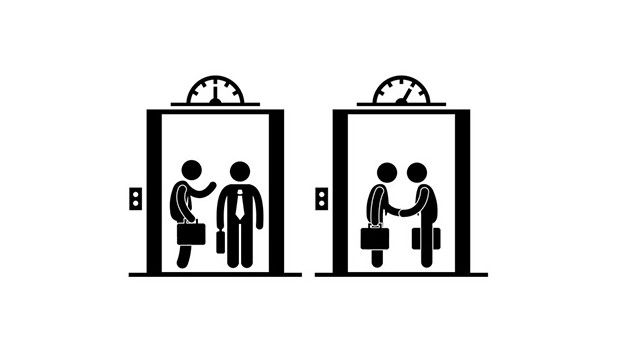Top 5 Ways for a Successful Job Search after Being Laid Off [Again]!
Post Views 32By definition, those who have been laid off one or more times have successfully found new employment at least once. Through this experience, they no doubt learned quite a bit about job hunting. In fact, they often have good advice for others who are newly unemployed.
But having found a job at least once before can breed resistance to new ideas about the search process. Such individuals often are skeptical about their need for help the next time around. But it’s a mistake for experienced job seekers to reject assistance.
People’s career strengths and needs change with each job they perform, their age and any shifts in the business environment. Professional athletes have coaches to help them adapt as their bodies, opponents, equipment and strategies evolve. It makes sense that professionals who intermittently look for work would need fine-tuning as well.
Five Ways to Reinvigorate Your Job Search after Being Laid Off Multiple Times
- The best way to refresh your approach is to use any outplacement services provided by your most recent employer.
If you don’t receive employer-paid outplacement, you may want to consider hiring and working with a career coach. Regardless of what resources you use, the following advice can help you as you plunge into the job market again:
- Realize your new job hunt may not be like your last one.
What worked before may not work again. You need to take a fresh, objective look at the marketplace as well as at your experience, accomplishments and objectives. Not only have you changed, but the environment has changed as well. Companies have merged; new businesses have started, while old ones have disappeared; new growth plans have been launched; and jobs have been created, moved or eliminated.
Redo your research, reassess your situation and update your strategy accordingly. Those downsized more than once have been given a unique opportunity to “rebrand” themselves, says West Coast career coach Miles Black. This means revising how they position themselves with employers at the start of their transition.
“You now get to look at what additional skills you’ve acquired, add them to what you previously knew how to do, and market yourself in a slightly — or very — different way to your existing database of potential employers and possibly to new target groups,” says Mr. Black.
Don’t use your last search as a benchmark. Since you and the job market have changed, the time it takes you to find a new job will probably change as well. People who spent a year looking for work the last time often set themselves up for a protracted search, while those who found work quickly tend to court disappointment by expecting the same results in their new efforts. Consider each search unique. Use reasonable weekly productivity goals to benchmark your progress.
- Assess your career position.
Where are you in your career trajectory and what is your next logical type of position on your way up the ladder? Can you take a lower-profile position without harming your long-term prospects? Is there enough money in your savings and retirement fund to allow you to try something new?
The director of marketing for a Fortune 500 industrial-products company assessed himself this way when he was downsized last summer. When he was laid off four years ago from a large manufacturing company, he limited his search to industry leaders, believing they were the only employers who could advance his career. But now that he had worked for several large employers and was in his early 40s, he was open to joining a smaller, less-prestigious organization. Many who badly needed a manager with his experience and abilities were offering competitive compensation and challenging opportunities. While his prior search had taken six months, this time he accepted an offer within 12 weeks. In his new post as director of marketing for a $150 million single-product manufacturer, he is overseeing the launch of a global marketing strategy and sitting on the company’s management board. The job is both satisfying and adding to his future employability.
- Reconsider your resume.
Even if a professional helped you with your last resume, you may need to do more than simply add your latest experience and accomplishments to it. You may be seeking a different type of job and want to emphasize different aspects of your background or omit information that’s now irrelevant. Perhaps you want to change to a chronological from a functional format, or vice versa. While you should never lie in your resume, you can select how much or how little you disclose.
The former president of several small steel companies discovered that less is more after he lost his job for the second time in five years. He wanted to stay in the steel industry and was willing to accept a post just below the president level. But since he listed only president jobs on his resume, employers he sent it to didn’t know how he would fit in because they already had presidents. He modified his resume so it listed his dates of employment, company names and functional duties but not his job titles. The revised resume helped get him in the door. In interviews, he disclosed his past positions but made his case for taking a lesser role. He landed a job as vice president at a small steel company whose president needed a right-hand to run operations.
- Go back to the contacts who helped you — and those who didn’t.
It can be intimidating to re-contact people who provided assistance the last time you were out of work. Ideally, though, you stayed in touch with these people. Even if you didn’t, don’t let fear stand in your way. They wouldn’t have helped before if they didn’t think you were a good prospect.
Glenn Courounis, vice president of human resources for Lenox Hill Hospital in New York, reminds job seekers that networking is relationship building. “Ask [contacts] what’s changed in their professional lives,” he says. “Explain how your strengths and vision have changed since your last job search. And don’t rule out those who weren’t able to help the last time. There’s a good chance that their career, contacts and experience have changed just like yours have. You may find there are now ways you can help each other.”
Even if you are career savvy, maintain your networks and continually develop new competencies, it’s likely that you can benefit from reviewing your approach before embarking on a new job search. By adapting your strategy to the current situation and focusing your energy on tactics that work, you’ll succeed once again.
Top 5 Ways for a Successful Job Search after Being Laid Off [Again]! by Granted Contributor



 Should You Consider Franchising as a Career Path?
Should You Consider Franchising as a Career Path?  Introductions May Help You Get an Interview
Introductions May Help You Get an Interview  Dominate Your Elevator Pitch
Dominate Your Elevator Pitch  How to Get a Job in the Hi Technology Industry
How to Get a Job in the Hi Technology Industry  How to Avoid Religious Discrimination in Your Job Search
How to Avoid Religious Discrimination in Your Job Search  Three Steps to Recharge Your Job Search
Three Steps to Recharge Your Job Search  Second Semester Job Search Checklist
Second Semester Job Search Checklist  How to Get a Job in Health Care or Biotechnology
How to Get a Job in Health Care or Biotechnology